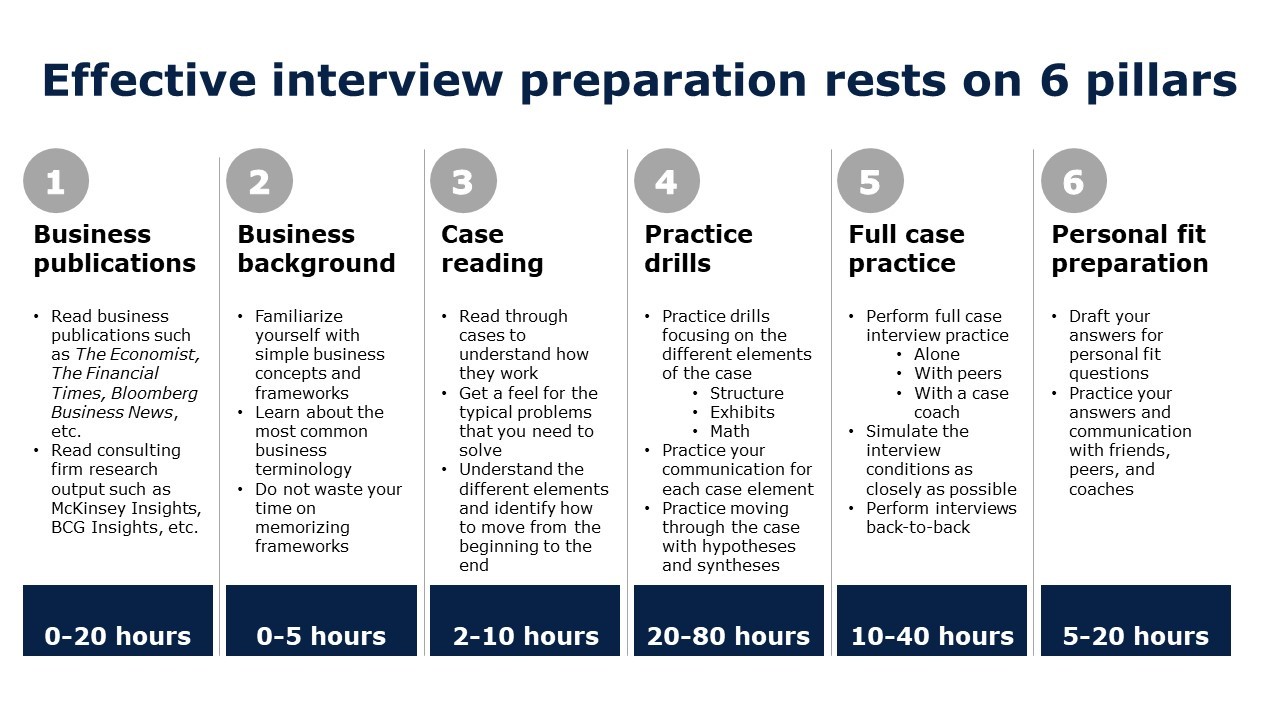Hello everyone!
First of I want to thank everyone in advance, who is willing to help me out:)
Before I get into my questions, let me give you a quick overview on my current situation:
I'm currently in my second semester of my B.A. degree at a german university. My goal is to land a job at MBB in germany after my bachelor's. So far, my academic perfomance is very good, and I've got my first consulting internship lined up for this summer. So, in terms of getting an invite, things are probably going into the right direction.
But, of course, the real challenge lies in the interview itself. To ensure I'm well-prepped for upcoming interviews for internships at T3/T2 (next Interview probably around ~Q3/4 2024) during my bachelor's, as well as the "final" interviews in ~2 years at MBB, I want to start working on my case-solving skills now. I'm planning to have weekly training sessions, dedicating a few hours, just like you would for other hobbies.
Here's roughly how I'm thinking of approaching it: 1) Learning all the basics - 2) Practice with other newbies to get a feel and understanding for case interviews - 3) Practice with more experienced persons to get valuable feedback and actually improve.
So here are my questions:
- Given that I have little to no experience with cases, I especially wanted to ask what you would recommend in terms of learning all the basic knowledge needed to start practicing cases - Cheng, Cosentino, PrepLounge Beginner Course…? - Also would you recomend to put together a personal collection of the most relevant theory in form of a summary / notion etc?
- Once I've learned the basics, can I just focus on practicing, or will I need to come back to learn additional theory later on?
- What general plan would you recommend for optimizing the development of my case-solving skills over the next few years?









